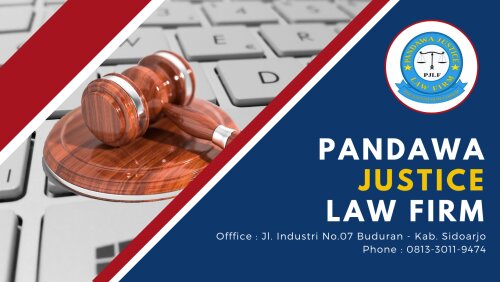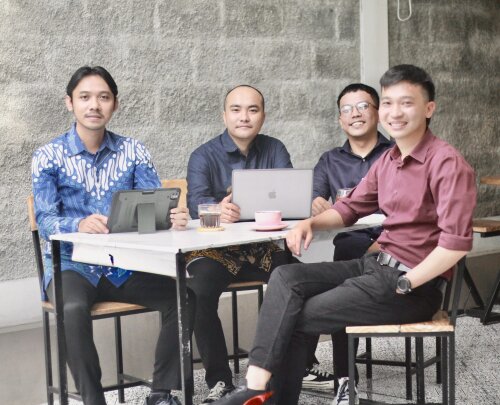Best Environmental Law & Compliance Lawyers in Indonesia
Share your needs with us, get contacted by law firms.
Free. Takes 2 min.
Or refine your search by selecting a city:
List of the best lawyers in Indonesia
About Environment Law in Indonesia
Indonesia, recognized for its vibrant biodiversity and extensive rainforests, faces numerous environmental challenges primarily due to its rapid industrial growth and deforestation activities. Environmental law in Indonesia comprises various regulations and standards established to protect the environment, ensure sustainable development, and manage natural resources responsibly. The governmental framework includes the Ministry of Environment and Forestry, which oversees the implementation of environmental policies and regulations. Key pieces of legislation include Law No. 32 of 2009 on Environmental Protection and Management, which regulates the management of the environment to align with sustainable development principles.
Why You May Need a Lawyer
Soliciting legal assistance in environmental law can be crucial in several situations:
- Land Use Conflicts: Individuals or companies may encounter legal disputes concerning the use of land, particularly in ecologically sensitive areas.
- Environmental Compliance: Businesses require guidance to comply with environmental regulations and avoid penalties.
- Pollution and Damage Claims: Legal representation might be necessary to address claims of environmental damage or pollution caused by or affecting land and businesses.
- Conservation Issues: Legal aid may be needed to navigate laws related to conservation efforts and biodiversity protection.
- Licensing and Permits: An attorney can also assist in navigating the complex licensing and permit requirements for using natural resources.
Local Laws Overview
Indonesia's environmental legal framework is primarily governed by Law No. 32 of 2009 concerning Environmental Protection and Management. Key aspects include:
- Environmental Impact Assessment (EIA): Businesses must conduct EIAs for projects likely to impact the environment adversely.
- Pollution Control: Regulations are in place to control industrial emissions, sewage, and hazardous waste management to minimize pollution.
- Natural Resource Management: Laws regulate the exploitation of natural resources, aiming for sustainability and conservation.
- Forestry Regulations: Rules govern logging activities, forest conservation, reforestation, and the prevention of illegal logging.
- Wildlife Protection: The law provides strict rules against poaching and the illegal trade of endangered species.
Frequently Asked Questions
1. What is an Environmental Impact Assessment (EIA)?
An EIA is a mandatory procedure intended to evaluate the potential environmental impacts of proposed projects before they commence, ensuring any adverse effects are addressed.
2. Do all businesses require environmental permits?
No, only activities with potential environmental impacts require permits. Such permits ensure that industry activities comply with environmental laws.
3. What constitutes environmental damage under Indonesian law?
Environmental damage refers to significant harm caused to ecosystems, such as water, air, and soil pollution, resulting from human or industrial activity.
4. What are the penalties for non-compliance with environmental laws in Indonesia?
Penalties can include fines, mandatory environmental restoration, temporary or permanent business suspension, and even criminal charges in severe cases.
5. How can indigenous communities seek legal help in environmental disputes?
Communities can approach legal aid organizations that specialize in defending indigenous rights or consult with NGOs focused on environmental advocacy.
6. Can citizens take part in environmental protection activities legally?
Yes, citizens can engage in activities such as community reforestation projects, advocacy, and monitoring of local environmental compliance.
7. How does the government regulate deforestation?
The government regulates deforestation through permits for logging, conservation laws, and policies aimed at sustainable forest management.
8. What role do NGOs play in environmental protection in Indonesia?
NGOs play a crucial role in advocacy, raising awareness, monitoring compliance, and providing legal assistance to affected communities.
9. How is waste management regulated?
Indonesia has specific laws governing the management of solid waste, hazardous waste, and urging the adoption of recycling initiatives.
10. Are there specific laws regarding marine conservation?
Yes, Indonesia has regulations designed to protect marine biodiversity, including the prohibition of destructive fishing practices and the establishment of marine protected areas.
Additional Resources
Several resources and organizations can assist with environmental legal issues in Indonesia:
- Ministry of Environment and Forestry: The primary government body responsible for formulating and enforcing environmental policies.
- Indonesian Legal Aid Foundation (YLBHI): Provides legal assistance and advocacy for various issues, including environmental rights.
- Walhi (Indonesian Forum for the Environment): A prominent NGO advocating for environmental protection and community rights in Indonesia.
- Greenpeace Indonesia: Focuses on campaigning for environmental conservation and policy change.
- Local law firms: Many firms specialize in environmental law, offering consultancy and litigation services.
Next Steps
If you find yourself in need of legal assistance regarding environmental issues in Indonesia, consider the following steps:
- Consult a Local Lawyer: Seek legal advice from a lawyer specializing in environmental law to understand your rights and obligations.
- Research and Educate Yourself: Familiarize yourself with Indonesia's environmental laws to better understand your situation.
- Engage with NGOs: Reach out to environmental NGOs for support, particularly if you face community-level environmental issues.
- Utilize Government Tools: Make use of resources offered by government agencies for resolving environmental disputes.
- Stay Informed: Keep abreast of policy changes and environmental issues by following reliable news sources and attending community seminars.
Lawzana helps you find the best lawyers and law firms in Indonesia through a curated and pre-screened list of qualified legal professionals. Our platform offers rankings and detailed profiles of attorneys and law firms, allowing you to compare based on practice areas, including Environmental Law & Compliance, experience, and client feedback.
Each profile includes a description of the firm's areas of practice, client reviews, team members and partners, year of establishment, spoken languages, office locations, contact information, social media presence, and any published articles or resources. Most firms on our platform speak English and are experienced in both local and international legal matters.
Get a quote from top-rated law firms in Indonesia — quickly, securely, and without unnecessary hassle.
Disclaimer:
The information provided on this page is for general informational purposes only and does not constitute legal advice. While we strive to ensure the accuracy and relevance of the content, legal information may change over time, and interpretations of the law can vary. You should always consult with a qualified legal professional for advice specific to your situation.
We disclaim all liability for actions taken or not taken based on the content of this page. If you believe any information is incorrect or outdated, please contact us, and we will review and update it where appropriate.
Browse environmental law & compliance law firms by city in Indonesia
Refine your search by selecting a city.
















